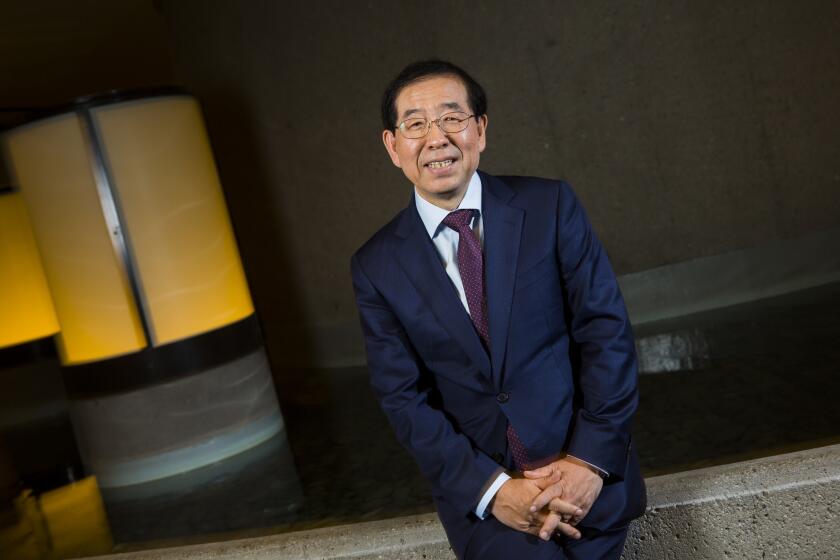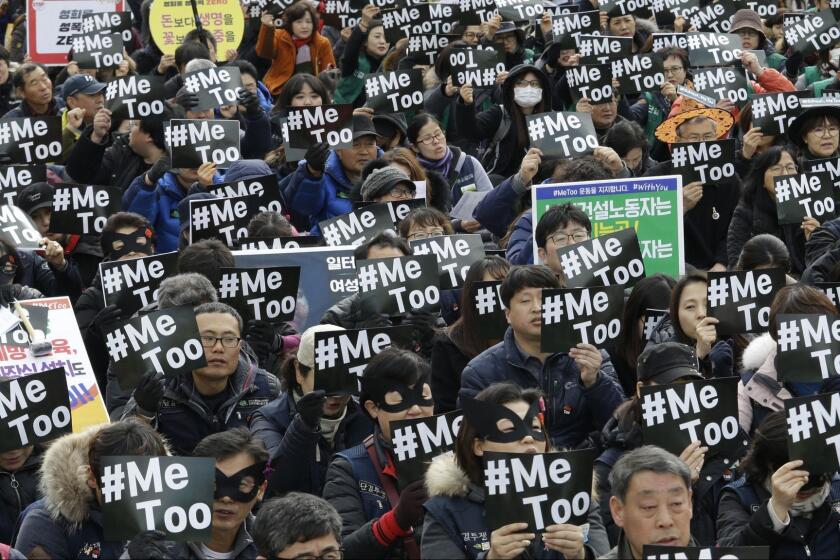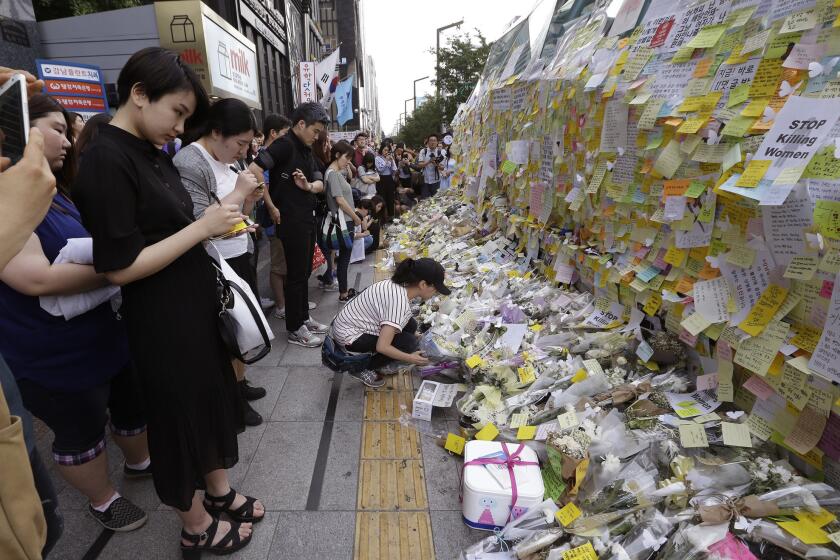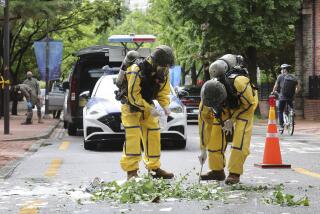âSorry to allâ: Seoul mayorâs apparent suicide sparks public grief â and questions
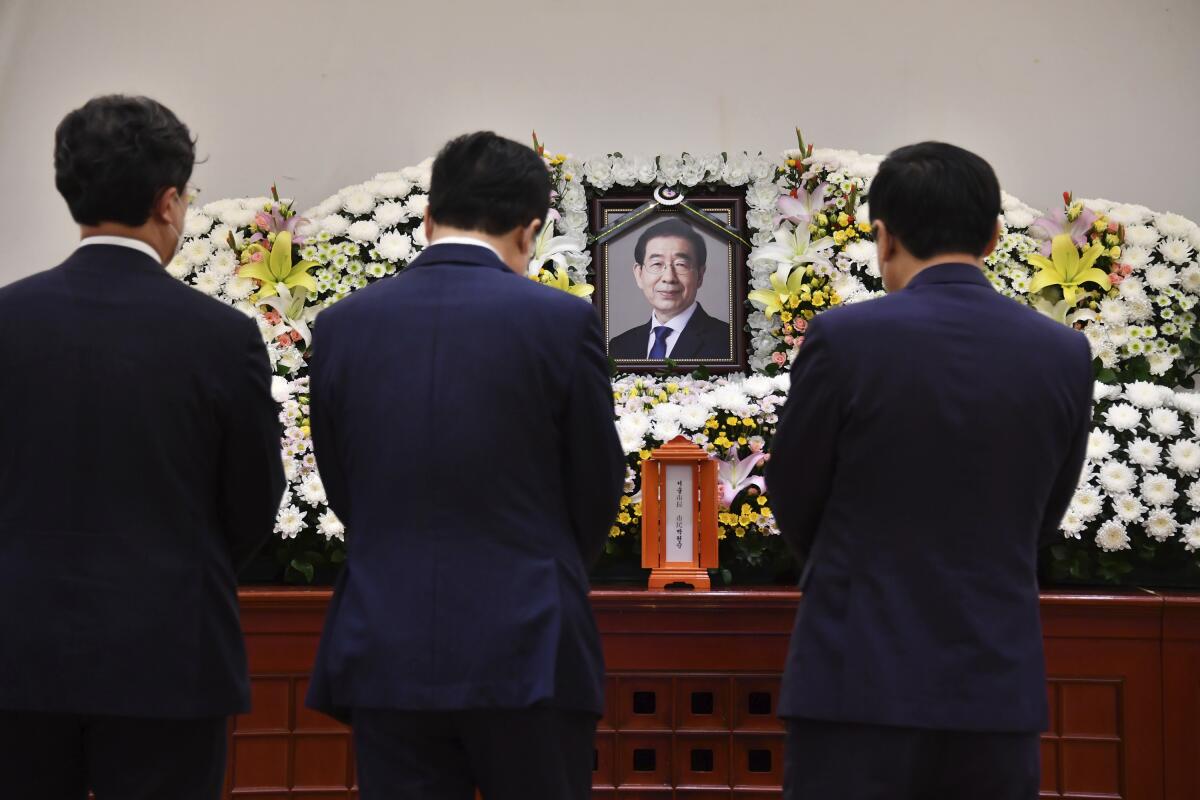
SEOUL â The mayor of Seoul, who was found dead early Friday, left a note saying he felt âsorry to all people,â city officials said, as South Koreans began mourning the liberal legal activist whom some saw as a potential presidential candidate.
But the sudden death of Park Won-soon has also raised questions about a man who built his career as a reform-minded politician and self-described feminist but who was reportedly implicated in a sexual harassment complaint.
Park, 64, was found dead in wooded hills in northern Seoul hours after his daughter reported to police that he had left her a âwill-likeâ verbal message and disappeared. His body was found after an extensive search near the last location broadcast by his cellphone.
Police said there were no signs of foul play at the site but refused to disclose a cause of death.
The municipal government said a note left by Park was found at his residence.
âI feel sorry to all people. I thank everyone who has been with me in my life,â said the note, which was shown on television. It continued with a request that his remains be cremated and scattered around his parentsâ graves.
Park Won-soon first visited Los Angeles many years ago as a young civic activist, visiting thrift stores and the L.A.
Park was a huge figure in South Korean politics. A former human rights lawyer, he led two of South Koreaâs most influential civic groups and was into his third term as mayor of Seoul, the South Korean capital, home to 10 million people. He was widely considered a leading liberal candidate to succeed his political ally, current President Moon Jae-in, whose single five-year term ends in 2022.
Parkâs supporters wailed and shouted âWe love youâ and âWe are sorryâ when his body arrived at a Seoul hospital. His name was the most popular search word on main portal sites, and condolence messages flooded social media. On one TV program Friday morning, a panelist choked up and couldnât continue talking about Park.
âI really respected him. ... I hope he can realize all his dreams in heaven,â Kim Young-hyun, 48, a small business owner, said near the Seoul City Hall.
But anti-Park sentiments also erupted amid media reports that one of his secretaries had lodged a complaint with police on Wednesday night alleging sexual harassment over an extended period. Police only confirmed that a complaint against Park had been filed but cited privacy issues in refusing to elaborate, including on whether the complaint was about sexual behavior.
When students reported that a male teacher at the private Yonghwa Girls High School in Seoul was touching them inappropriately, they were ignored.
Some critics questioned the image of a man who had portrayed himself as âa feminist mayorâ dedicated to gender equality and a vocal supporter of the #MeToo movement.
During his days as a human rights lawyer, Park won South Koreaâs first sexual harassment conviction in 1998, following a years-long legal battle in which he represented a university research assistant who accused a professor of making sexual advances and firing her after she rejected them. As mayor, he appointed a special advisor on gender-equality issues and introduced policies aimed at designing safer urban environments for women and providing affordable housing for working single women.
Yu Chang-seon, a commentator on social issues, said that the secretary who reportedly accused Park of harassment should not be made to feel guilty.
âEveryone commemorates the deceased without talking about the pains the female victim will carry for her entire life,â Yu wrote on Facebook. âIâm worried that she could be locked in a trauma of feeling she killed someone. ... Iâd like to tell her that âYou didnât do anything wrong.ââ
At the subway station exit, Lee Je-hee knelt down, weeping, while writing a message to a person she never knew.
Professor Yi Han Sang at Korea University criticized the Seoul city government for planning to establish a public mourning area near its building and use official funds for Parkâs funeral, which is set for next week. He said the city government must stop acts that could lead to public criticism of the victim and focus on thinking about how to protect her and find out the truth about the allegation. The woman has not been publicly identified.
Though womenâs rights have gradually improved in recent years, South Korea largely remains a male-centered society. The #MeToo movement that began in 2018 in South Korea overthrew many male celebrities, but the women who had raised allegations sometimes faced strong online attacks and other backlash from supporters of the alleged abusers.
The most prominent South Korean man caught in the #MeToo movement was South Chungcheong Province Gov. Ahn Hee-jung, a liberal who is now serving a prison term of three and a half years for raping his former secretary.
Earlier this year, Oh Keo-don stepped down as mayor of Busan, the countryâs second-largest city, after a female public servant accused him of sexually assaulting her in his office.
Breaking News
Get breaking news, investigations, analysis and more signature journalism from the Los Angeles Times in your inbox.
You may occasionally receive promotional content from the Los Angeles Times.
The U.S. ambassador to South Korea, Harry Harris, expressed his sadness at Parkâs death. âMy condolences to his family and to the people of Seoul during this difficult time,â his tweet said.
Park led an aggressive campaign to try to prevent the spread of the coronavirus in Seoul, shutting down thousands of nightspots and banning rallies in major downtown streets.
But the capital has become a new center of the outbreak in South Korea since the country eased its rigid social distancing rules in early May. Authorities are struggling to trace contacts of infected people as clusters arise in a variety of places.
More to Read
Sign up for Essential California
The most important California stories and recommendations in your inbox every morning.
You may occasionally receive promotional content from the Los Angeles Times.
